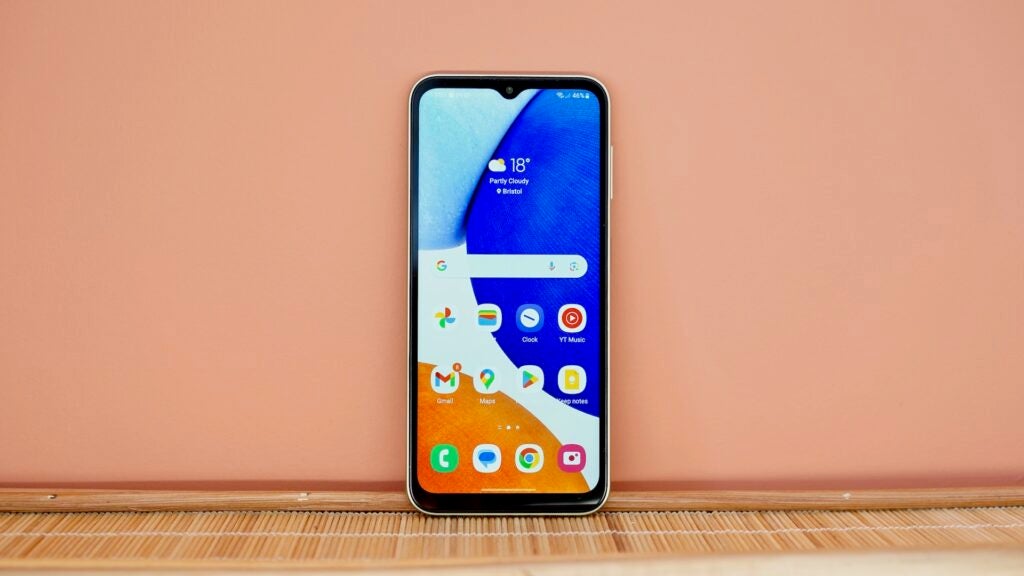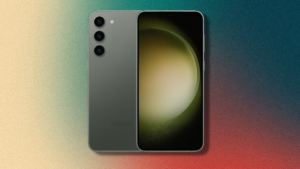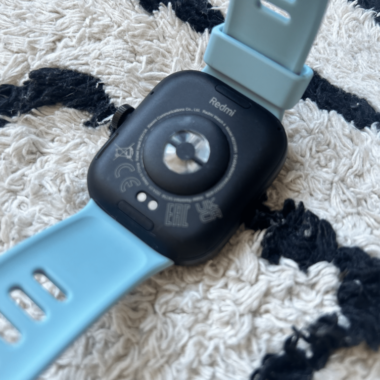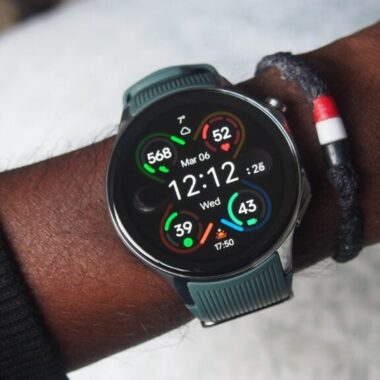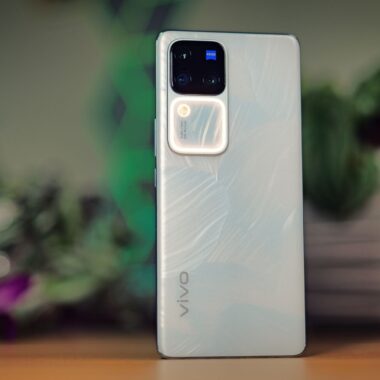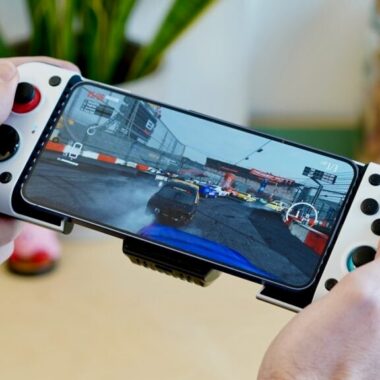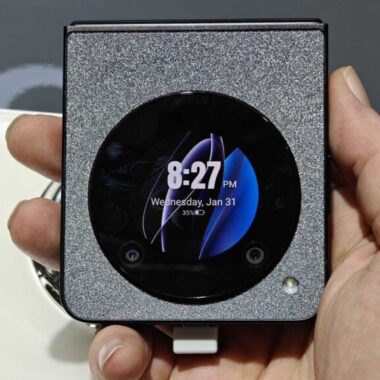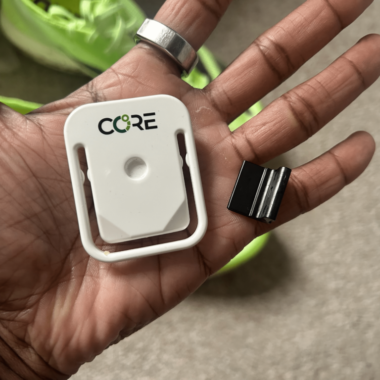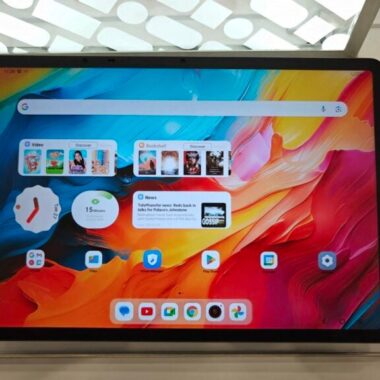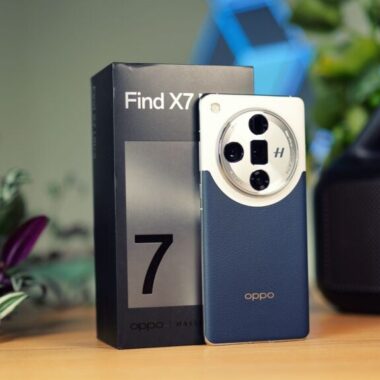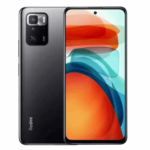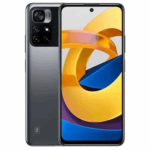Verdict
The Samsung Galaxy A14 5G remains a solid affordable all-rounder in early 2024 with reassuring stamina, a solid screen, a decent main camera and a long-term software promise. However, its performance is somewhat sluggish, as is its charging speed, and you’ll find various upgrades from the newer Galaxy A15 5G.
Pros
- Solid 50MP main camera
- Decent LCD display
- Strong battery stamina
Cons
- Creaky body
- No ultrawide camera
- Mediocre performance
- No charger in the box
-
All-day battery lifeThe 5000mAh cell of the Samung Galaxy A14 5G will comfortably get you through a day or two without a top-up. -
A simple, focused camera setupThough it lacks the ultrawide of key budget rivals, the 50MP main camera is capable for the price point. -
Long-term software supportSamsung’s promise of two OS upgrades and four years of security patches mean it’ll be supported for much longer than most budget smartphones.
Introduction
You might think that there are plenty of cheap phone options on the market. However, when it comes to 5G phones in the £200/$200-ish range, the £219/$199 Samsung Galaxy A14 5G was one of relatively few to be released in 2023.
The question is, is it still worth buying a year after its release? While the Galaxy A14 5G remains a capable phone at a now even cheaper price point than its original RRP, it has since been replaced by the newer Galaxy A15 5G with an upgraded display and more.
While that does complicate things somewhat, there’s still a lot to like about the Galaxy A14 5G compared to other seriously budget phones like the Redmi Note 12 and the Poco M5s.
So, let’s dive in and see how the Samsung Galaxy A14 5G stacks up a whole year after its initial release.
Design and screen
- Plastic design is a little creaky
- Grippy textured rear
- Decent 6.6-inch FHD+ 90Hz display
Samsung has made a rather chunky phone in the Galaxy A14 5G. Its surface area takes up a considerable 167.7 x 78mm of space, with a fairly large 6.6-inch display added to some particularly thick bezels, including a huge chin.
It’s quite thick too, to the tune of 9.1mm, while a weight of 202g gives it quite a bit of heft. Given that weight, you might assume that some metal was used in the phone’s construction, but this is an all-plastic body.
It’s worth noting too that this is one area that the newer Galaxy A15 5G improves upon, with a slightly reduced thickness of 8.4mm and weight of 200g.
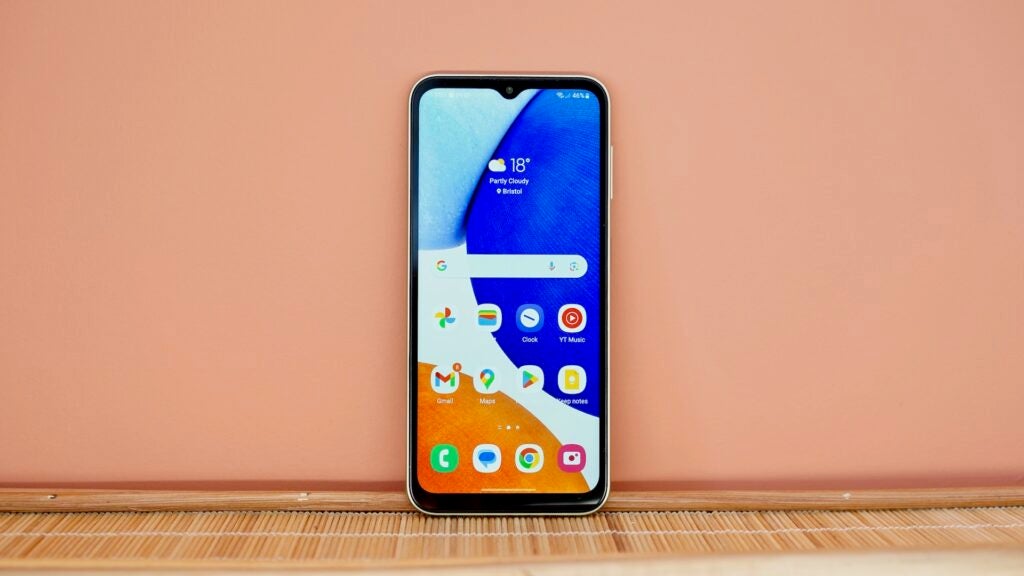

Typically Samsung’s plastic work is exemplary, but I was a little disappointed by the feel of the A14 5G. In particular, my own test unit developed a creaky section low down on the right-hand edge.
The rear of the A14 5G looks and feels a lot better than the rest of it. Samsung has given it a texture of very finely spaced but large concentric circles – or portions of them at least. It gives the phone a unique look, and also proves to be extremely grippy. It helps fend off fingerprint smudges too, which is always a welcome feature.
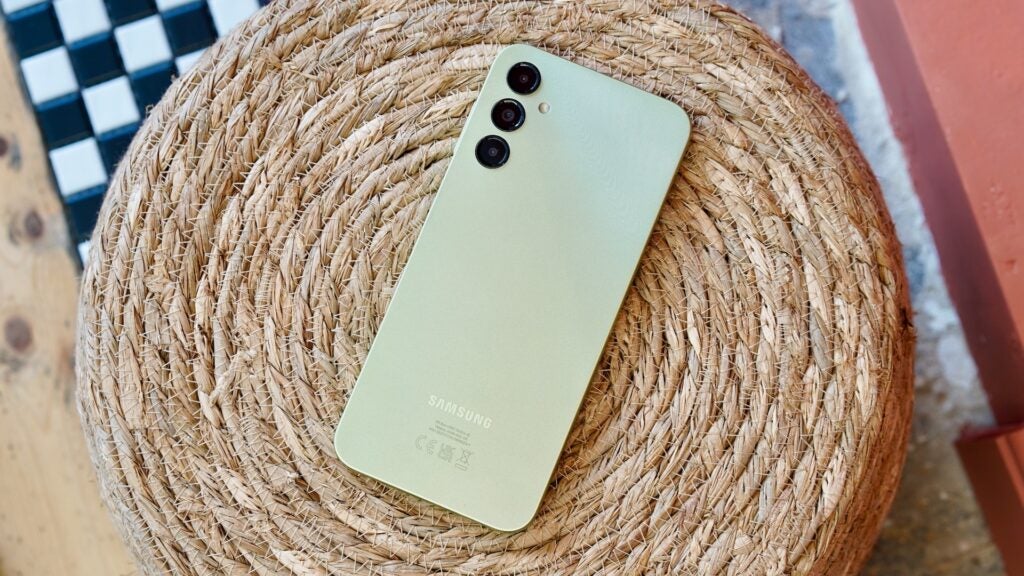

My model comes in a light metallic Green tone, but customers can also choose from Silver and Black.
The A14 5G’s 6.6-inch display doesn’t capitalise on Samsung’s OLED expertise, but it is a very credible LCD. This is a so-called PLS panel, which is effectively Samsung’s take on IPS. This means that it gets plenty bright, and viewing angles are good.
You get an ample 1080 x 2408 (FHD+) resolution, so it’s nice and sharp, and a 90Hz peak refresh rate keeps things feeling smooth. With that said, it’s impossible to run the A14 5G’s display flat out, with a binary choice between Standard (60Hz) or Adaptive (up to 90Hz, depending on the situation).
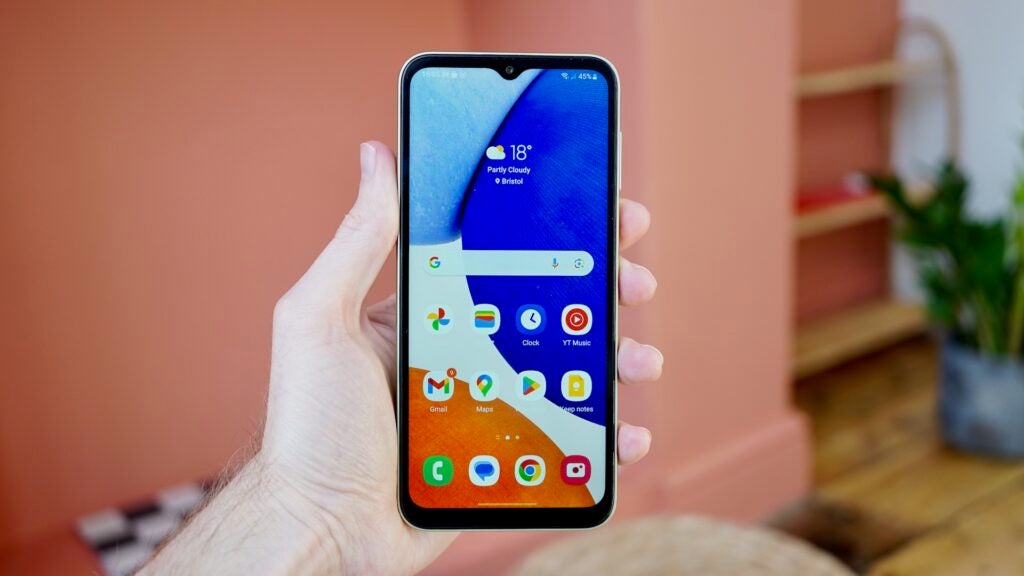

It’s not a hugely colour-accurate screen, with a little of that Samsung vibrancy at play, but the effect isn’t excessive. Everything pops nicely, and as alluded to, it gets to a pretty-bright 526 nits according to my colorimeter.
If Samsung’s OLED is important to you, it’s worth noting that it is a feature of the newer Galaxy A15 5G – though the screen is also slightly smaller at 6.5 inches, so you’d have to weigh up the pros and cons for your specific use-case.
Camera
- 50MP main sensor, no OIS
- 2MP macro and depth sensors
- No ultrawide
Samsung has made a curious, some may say bold decision with the Galaxy A14 5G camera system. It’s essentially placed all its eggs in a single 50MP wide sensor basket, with no ultra-wide or telephoto backups.
Those two additional lenses that you see in the pictures are a pair of 2MP sensors, one for macros shots and one for depth assistance. They’re barely worth mentioning beyond that, with the 2MP macro camera in particular simply not offering the sharpness needed to take compelling close-ups. Macro shots are a total blurry washout here.
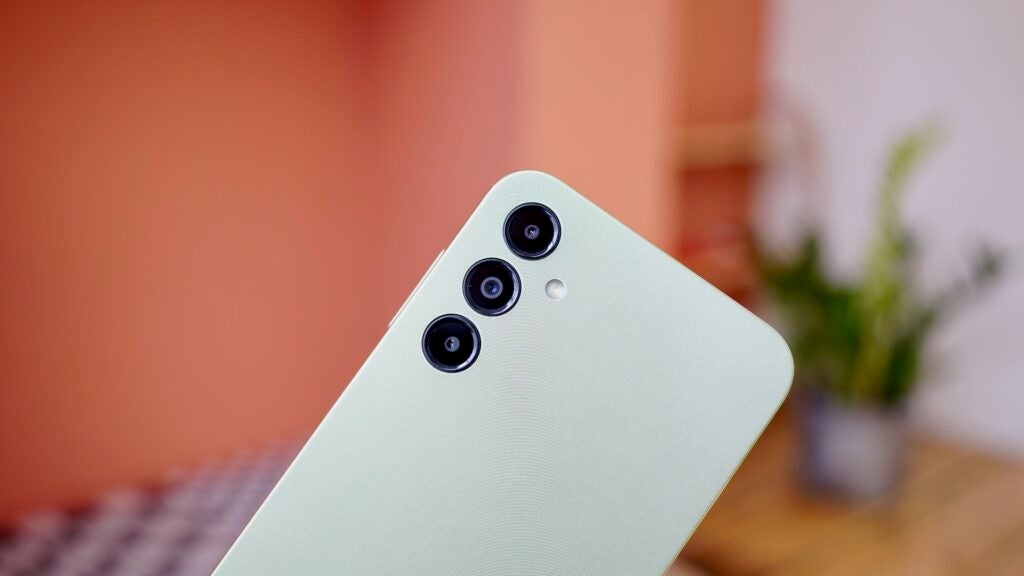

Still, it could be argued that Samsung’s gamble has paid off. The A14 5G’s main sensor takes pretty decent, well-balanced shots, at least in good lighting. Contrast and exposure are largely on point, and detail is good. Skin tones also look nice and natural, while even the portrait mode works pretty well at separating subject from background in a sea of buttery bokeh.
You do get a little of Samsung’s punchy colour science here, which favours social media pop over a naturalistic depiction of a scene. The effect is not egregious, though, and actually makes a good deal of sense given the target audience of young and casual users.
I did initially miss the option of taking ultra-wide shots, but there’s a certain sense of logic to its omission. The truth is, cheap phones tend to have terrible ultra-wide cameras, producing shots that look nowhere near as good as the main sensors.
It’s a similar case with the lack of a telephoto, with the A14 5G cropping in on that 50MP main sensor instead. This does serve to show up the limitations of the hardware, with shots that start to get a little fuzzy even at 2x.


Night mode isn’t so strong here, producing somewhat murky, grainy shots. It can’t help that there’s no OIS to help out, so any stabilisation has to be done algorithmically. That might explain why Samsung has buried Night mode away in the More menu.
The 13MP selfie camera isn’t bad at all. No, you don’t get the rich colours of the main sensor, but everything looks reasonably natural, including skin tones. There isn’t a huge issue with overexposure either, as is often the case with cheaper selfie cameras.
The newer Samsung Galaxy A15 5G does improve the camera offering somewhat, swapping out the 2MP depth sensor for a 5MP ultrawide to bring wide-angle shots to the budget shooter, though without spending enough time with it, I can’t say if there’s a notable improvement to the overall experience.
Performance and software
- MediaTek Dimensity 700 chipset
- 4GB RAM
- Android 13 with OneUI Core 5
Samsung has equipped its cheap and cheerful Galaxy A14 5G with a correspondingly cheap and cheerful MediaTek Dimensity 700 processor. This 7nm chip is not a new component, having powered the likes of the Redmi Note 10 5G, the Realme 8 5G, and the Poco M3 Pro 5G way back in mid-2021.
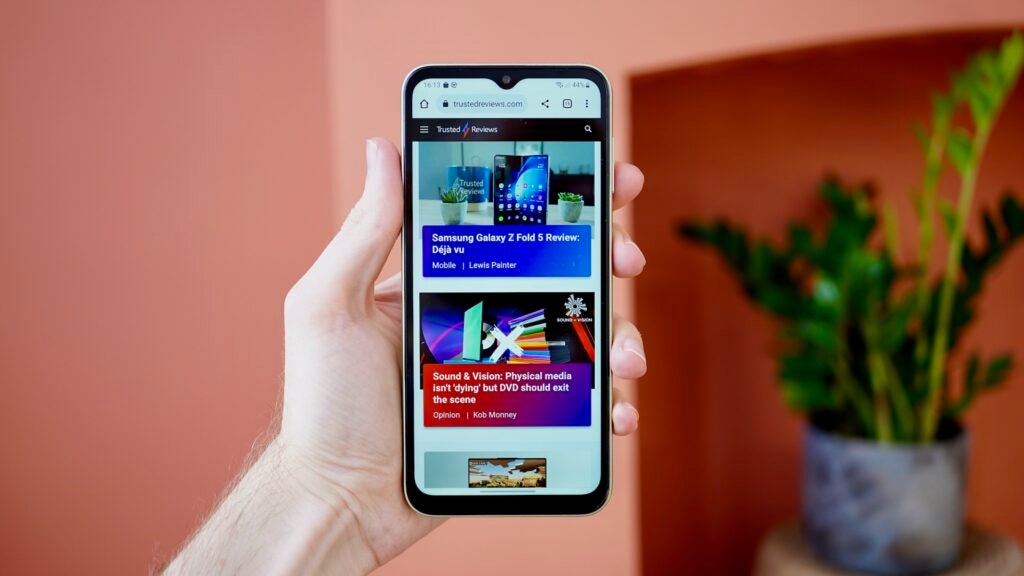

I didn’t find this chip to be a particularly impressive performer back then, and I certainly didn’t find it to be up to much more than two years down the line. Paired with a lowly 4GB of RAM, booting up and switching between apps takes a beat longer than is comfortable, and there’s a general inconsistency to animation speeds while navigating about.
In benchmark terms, it falls behind rival budget efforts from the Poco, Redmi, and Realme brands. The Realme 9 5G is a good point of comparison, because despite being a year old at this point it offers a similar price and spec, but exhibits a clear performance advantage.
The provision of just 64GB of storage feels a little meagre too, by modern cheap phone standards. We’ve come to expect double that, though you do get a microSDXC slot for expansion purposes.
It’s not an experience that’ll improve that much with the newer Galaxy A15 5G either, sporting an ever-so-slightly newer MediaTek Dimensity 6100+ and the same 4GB of RAM, but at least it starts with a boosted 128GB of storage.
As for software, the phone sported Samsung’s custom OneUI Core 5 sits on top of Android 13, though it has since had the update to the newer OneUI 6 based on Android 14. As ever, Samsung’s UI is a love-it-or-tolerate-it affair. For many users, it’s the only smartphone interface they’ve ever known, and offers a high degree of customisation.
For others, it lacks the crisp clarity of stock Android and its close variants. Samsung’s UI is definitely more visually cohesive than most of its Chinese rivals, but it lacks the leanness of Motorola’s lightweight UI.
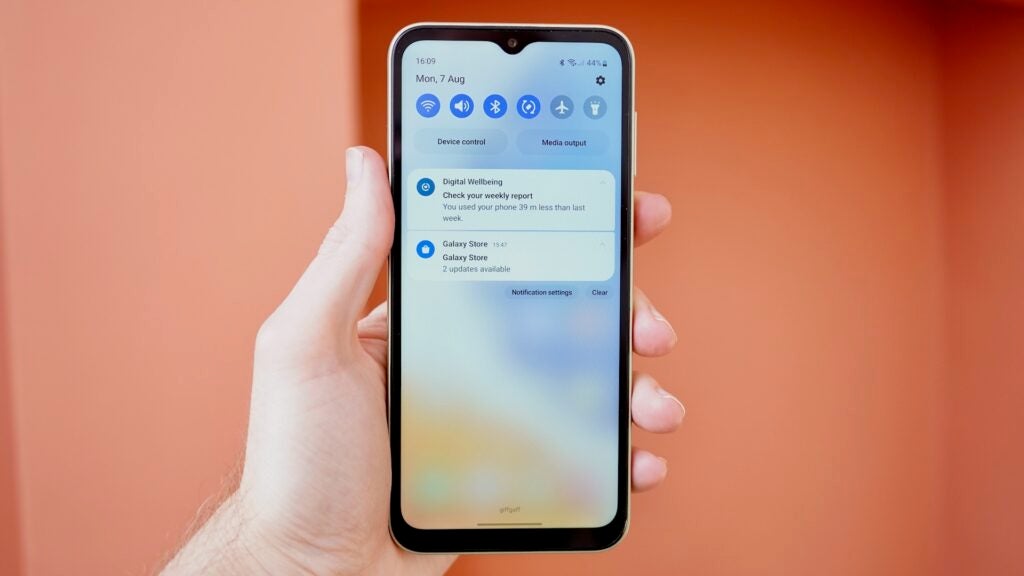

It’s not the worst offender on the bloatware front. You get Netflix and Spotify, a few Microsoft apps, a couple of rubbish games, and LinkedIn preinstalled, plus a few of Samsung’s own apps. I still don’t get why we need another web browser when Chrome comes preinstalled, but that’s far from a Samsung-exclusive complaint.
On the update side of things, Samsung has said that it will support the A14 5G with two years of baseline Android updates and four years of security updates. That’s pretty darned good for a cheaper phone, although considering the phone has now had the Android 14 update as of early 2024, there’s only one left.
Battery life
- 5000mAh battery
- 15W charging support
- No charger in the box
The Galaxy A14 5G comes with a large 5000mAh battery, and despite that somewhat inefficient 7nm processor, it’s easily good for a full day of intensive usage.
I found that I was able to get to the end of a 15-hour day with 5 hours and 40 minutes of screen-on time, and would be left with a little over 20% left to play with. Lighter use could conceivably see you getting through two full days.
In practical terms, an hour of Disney+ streaming sapped 10% of a charge, while 30 minutes of light gaming on Vampire Survivor ate 6%. This isn’t the most efficient phone when it comes to media performance, but then you could say the same about most affordable phones.
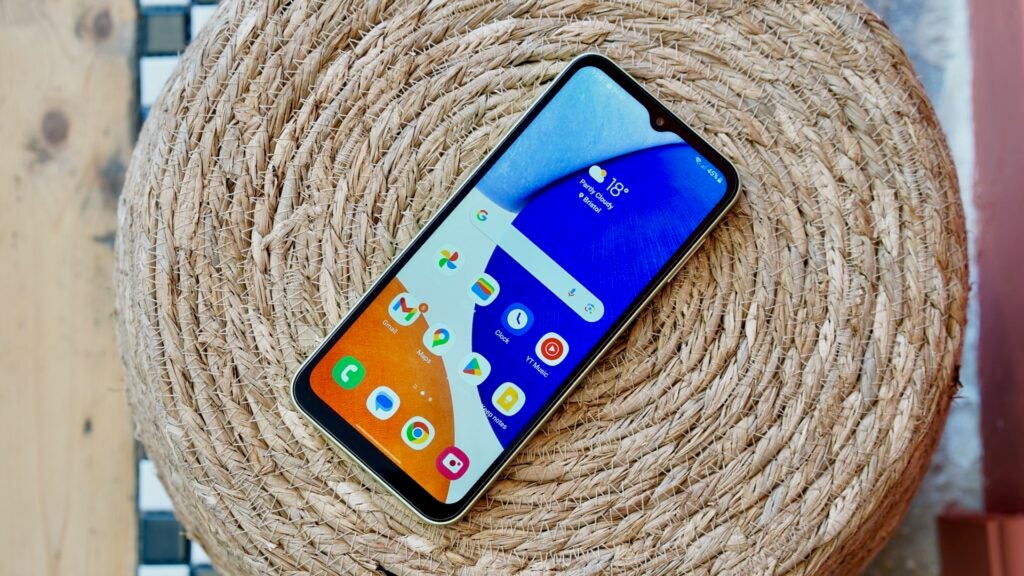

Charging speeds aren’t particularly rapid, with a maximum of 15W supported. However, Samsung doesn’t include a charger in the box. We’re used to seeing that in more premium models, but it feels like a bit of an oversight in a cheap phone, which is going to be a candidate for a first smartphone.
Certainly, Samsung’s key cheap phone rivals (including Poco, Redmi, Realme, and Motorola) all tend to bundle their phones with chargers – and often more rapid ones at that.
I used a Samsung 25W brick to test the Galaxy A14 5G’s 15W charging speeds, and found that it would charge to 15% in 15 minutes and 30% in 30 minutes. It largely kept to that ‘1% a minute’ pattern right up until it had about 5% left, at which point it slowed right down, ultimately taking just shy of 2 hours 30 minutes for a full charge.
That’s not too speedy, even for a cheap phone. It is slightly improved somewhat by the newer Galaxy A15’s 25W charging, but that’s still not too rapid.
Should you buy it?
You want reliable stamina: The Samsung Galaxy A14 5G’s 5000mAh battery will get you through two full days of light usage.
You play a lot of games: The Samsung Galaxy A14 5G has an old, creaky processor that doesn’t handle advanced tasks like gaming particularly well.
Final Thoughts
Samsung has created another dependably solid affordable option in the Galaxy A14 5G, but it struggles to offer something flat-out better than its budget-focused competition – especially with the release of the newer Galaxy A15 5G that fixes some of the core complaints about this model.
Its display is fine, and both its 50MP main camera and its 13MP selfie camera are capable of taking decent shots in good lighting. I can’t fault the A14 5G’s stamina, either.
Despite all that, I can’t help but come away a little underwhelmed. Rival brands have been offering broadly equivalent specs, but with much better performance and faster charging speeds, for some time now. What’s more, the A14 5G’s build quality isn’t quite up to snuff, at least on our test model, which isn’t something I expect to see from Samsung.
There’s a sense of dependability about all of Samsung’s phones, and the A14 5G won’t let anyone down. But in this area of the market, where the margins are tight, Samsung can’t quite seem to make a definitive statement.
FAQs
1 day of intensive usage, 2 days lighter usage.
6.6 inches.
No.
Jargon buster
mAh
An abbreviation for milliampere-hour and a way to express the capacity of batteries, especially smaller ones in phones. In most cases the higher the mAh, the longer the battery will last but this isn’t always the case.
LCD
The type of display usually used on cheaper and mid-range devices. Lacks the punch on an OLED panel.
5G
Offering faster download and upload speeds when compared to 4G. Great for game streaming and HDR video playback. Not supported everywhere yet and speeds vary wildly.

